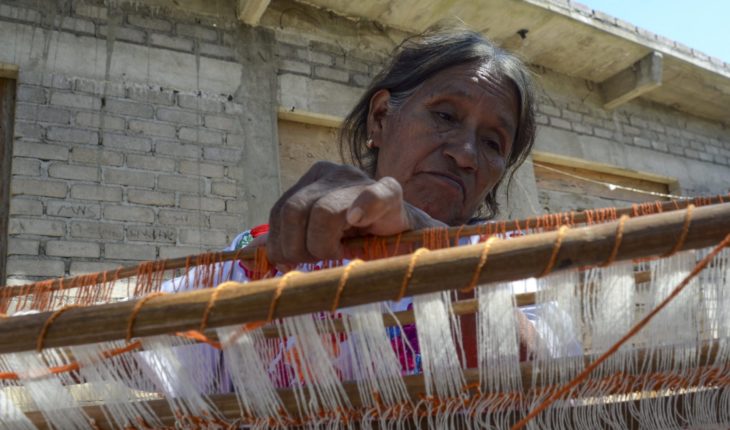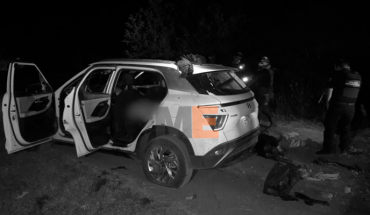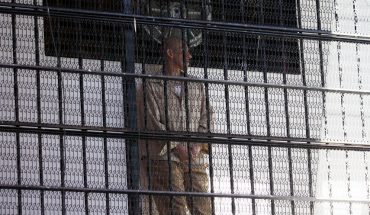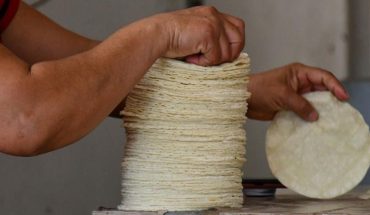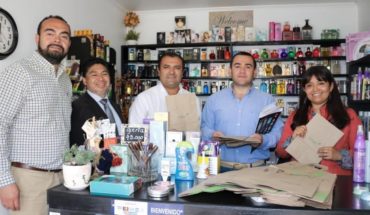Martha spent three hours refugee at school, terrified, and not knowing what to do. Director of elementary school where he studied his daughter said that he could not return home because their spouse was going to kill. At 5 in the morning of that day, June 5, 2018, the man had given him a beating. It was a knife. I was going to kill her. One of the two daughters of both began to beg you not to do damage to his mother, that stopped him.
The woman tried to follow the routine and prepared to the seven-year-old girl to take her to school. On this pretext he managed to leave the House. He crossed the door thinking of escape, along with another four-year-old daughter, but he did not know where go. For where it smashed only had monte and an alley with a row of humble houses. The last was his. The only thing that came up was aimed at primary school and take refuge there.
After three hours to look for an option to help the woman, the director of the school called the non-profit alternative Center for the indigenous Integral Development (CADIN). They told him that they would then help it. Liria May, Center Coordinator, took the case. For days he accompanied Martha to the Prosecutor’s office and to various bodies looking for help.
Authorities brought them to spinning. They did not give any solution, they even issued an order of protection. Tired of coming and going, without money or work or own housing, Martha, of 38 years, he had to return with her husband.
Official statistics from INEGI, the national survey on the dynamics of relationships (ENDIREH 2016) household registers that Yucatán is one of ten States where women suffer more attacks. The prevalence is 65.2%. The highest is the CDMX with 78.4%.
But Liria May says that that percentage will be the average prevalence in all Yucatan. In the communities that it serves: San Antonio Siho, Halachó and Maxcanú in the Mayan villages of the South of the State, eight in ten women suffer from violence.
Almost none obtained justice or protection by the State. CADIN arrive about 30 women a month, of which only three or four decide to raise a complaint. Many prefer to go with the Justice of the peace and reconcile. Others only seek counseling or something you outgrow them: a traditional sobada maya or puncture, services that also occur in the Middle digit.
That have been denounced, “only in two cases we have achieved the access to justice and now these women are separated from their exparejas, work and are independent.” In the first case, a lawyer who was then plant in the CADIN carried throughout the process and won. In the second, the woman found a job and managed to escape from the spouse.
The low rate of success when women denounce violence has an origin of discrimination by gender, but also is a racist issue, says Fátima Gamboa, Attorney for the non-profit Equis justice for women. “No matter the authorities happens to indigenous women. They put an amount of excuses and make them many deceptions to not address them. Do not give importance to the problem of violence. They believe that they are to blame for that.”
Government departments working in the interior of the municipalities of Yucatan have no monitoring, follow-up or evaluation on your work. “There is no institutional tools to ensure access to justice for indigenous women as if they exist in the cities. “They don’t have free public defender’s office, there is no flow of information, nor mechanisms so that they can complain if they serve them poorly, and many do not even speak Spanish”, says the lawyer.
pretexts and lies
the same day that the school principal asked support for Martha, Liria May accompanied it the public prosecutor of Maxcanú. The complaint arose, and nothing more. The coroner was not, so the victim did not review. Nor issued a protective order to prevent more attacks. “The Prosecutor told us that the person in charge of issuing those orders was not and we went back later,” has Liria.
Martha did not want to go to a shelter. He went to the House of his father. The spouse got in the night there. He joined the force and returned to beat her. The woman reached to call the CADIN. The Center is communicated with the delegation of Halachó. Several police officers arrived at the home and were arrested the assailant.
In cases, Gamboa explained, prosecutors have 48 hours to link the defendant to the process. But almost never end up doing the research and do not have all the elements to bring him to the judge’s control, so you end up releasing.
May knew that, that led to Martha, the next day, again to the Prosecutor’s office to process the order of protection. He told prosecutors that the spouse had returned to beating Martha. “And what else wants us to do – said you it-, the violence is part of the culture of these women.” They hit them because they allow it. How many years it takes enduring violence without doing anything”.
“That told us the Bachelor”, says Liria. It was when Martha snapped: “Yes, but do not want to continue holding”. They were given the order of protection, nor that the two days in a row in those who returned by the document. “We never found the purported responsible of issuing it.” Only rose a new complaint.
Fátima Gamboa Equis Justice Attorney said that it was lying there a responsible figure to issue protection orders. “In the public prosecutor’s Office investigators agents or prosecutors who are there have competition to dictate it. Only that many do not know that they can do it or how”.
Another thing that say indigenous women – said Leticia Murúa, Director of Apis Southeast, Foundation for fairness, another organization that assists victims of violence – is that to obtain a protective order first must raise a complaint and also They asked a lawyer to request it. “Neither are conditions.” Women may apply for an emergency protection order and the authority has to issue it.
The language is also an obstacle to justice. When women come to the public prosecutor’s Office, said Gamboa, ask them if they speak Spanish or maya. “Many respond that they understand Spanish, then say, ah, well, let’s do it all in Spanish”. They are forcing them with that to make a legal procedure in a language that is not theirs and that do not dominate. And if they ask for a translator, they have to wait hours or return the next day because they are expected to arrive from the central of Mérida.
Liria accused that to the promoters of community justice or the companions of the associations, prosecutors prohibit speaking in maya with the women. “They tell us that we are not in the list of translators of the Prosecutor’s office and then we talk in Spanish with them.” That also complicates the procedure.
That indigenous women are in government departments – summarizes Murua – is a general insensitivity. “Up to ask them if they are sure to raise the complaint, they tell them that if already thought it well, because then they repent and forgive them”.
Martha and Liria also went to the Attorney General from the defense of the minor and the family (Prodemefa) of Halachó to handle alimony. The woman was determined to separate from the spouse. But there also was found responsible for the procedure. “They told us that it is only one day a week, but there is no fixed day or time to find it,” says May.
back with the aggressor
the spouse of Martha went free. After two weeks, she decided to return to the House with him. I had no where to go, other families lived in the of his father and did not fit already. It didn’t work. “He decided to return because he had no money to feed her two daughters. “I could not lead to the largest school, they had no where to live and she barely speaks Spanish”, explains Liria.
The women here are trapped, resume, have studies. The largest finished only elementary school. The new generations are already becoming secondary. But they are married very young. They are already married at age 15, begin to have children and never have the opportunity to find an income of her own.
There is a State policy that seeks to change that. “They don’t care to help women start a productive project so they can make their money and be independent. Here many embroider, make hammocks, they could work on that, but there is no support. Which are beginning to work are entering the maquiladoras”.
The State leaves indigenous women very alone. The aggressors are assigned a defender of trade when they denounce them domestic violence, they, on the other hand, do not have legal accompaniment. “Here in the Center there is a lawyer of plant that give the follow-up to all cases. There is a lawyer and a psychologist who come and give attention and advice to women, but may not be all the time.”
The men are also caught in this region: violence, poverty and addictions. Of 10 men, eight consume alcohol and drugs, especially marijuana, said Liria. It is also due to the lack of opportunities. “There are many young people looking to get ahead, but can’t.” There is no money to stay in school. They are frustrated because they are not what they want. The pattern of violence that are seen in their homes also lead them to addiction”. Nor is there a public policy of support for them.
Liria lives three or four houses of Martha. When you pass, you hear the cries of the spouse offending it. He doesn’t know if he has returned to beat her. When they are on the street, the woman greets her and leaves. It may not do anything while Martha does not again ask for accompaniment. “There will be support if returns to find us”. It remains to be seen if then the State wants to do its part to protect it.
this publication was made possible through the support of Kellogg Foundation
translated from Spanish: State let alone women Mayan victims of violence
September 13, 2018 |
